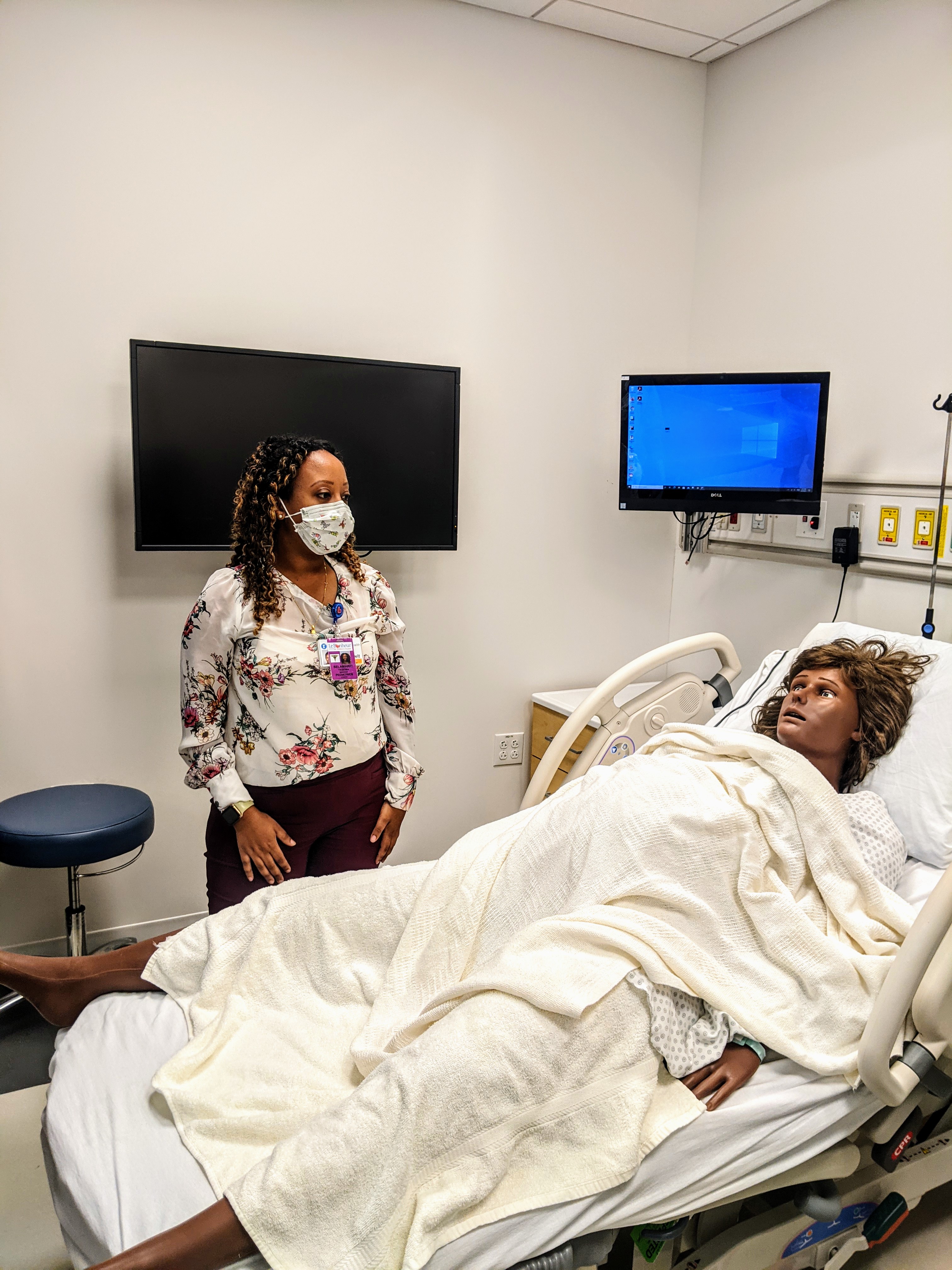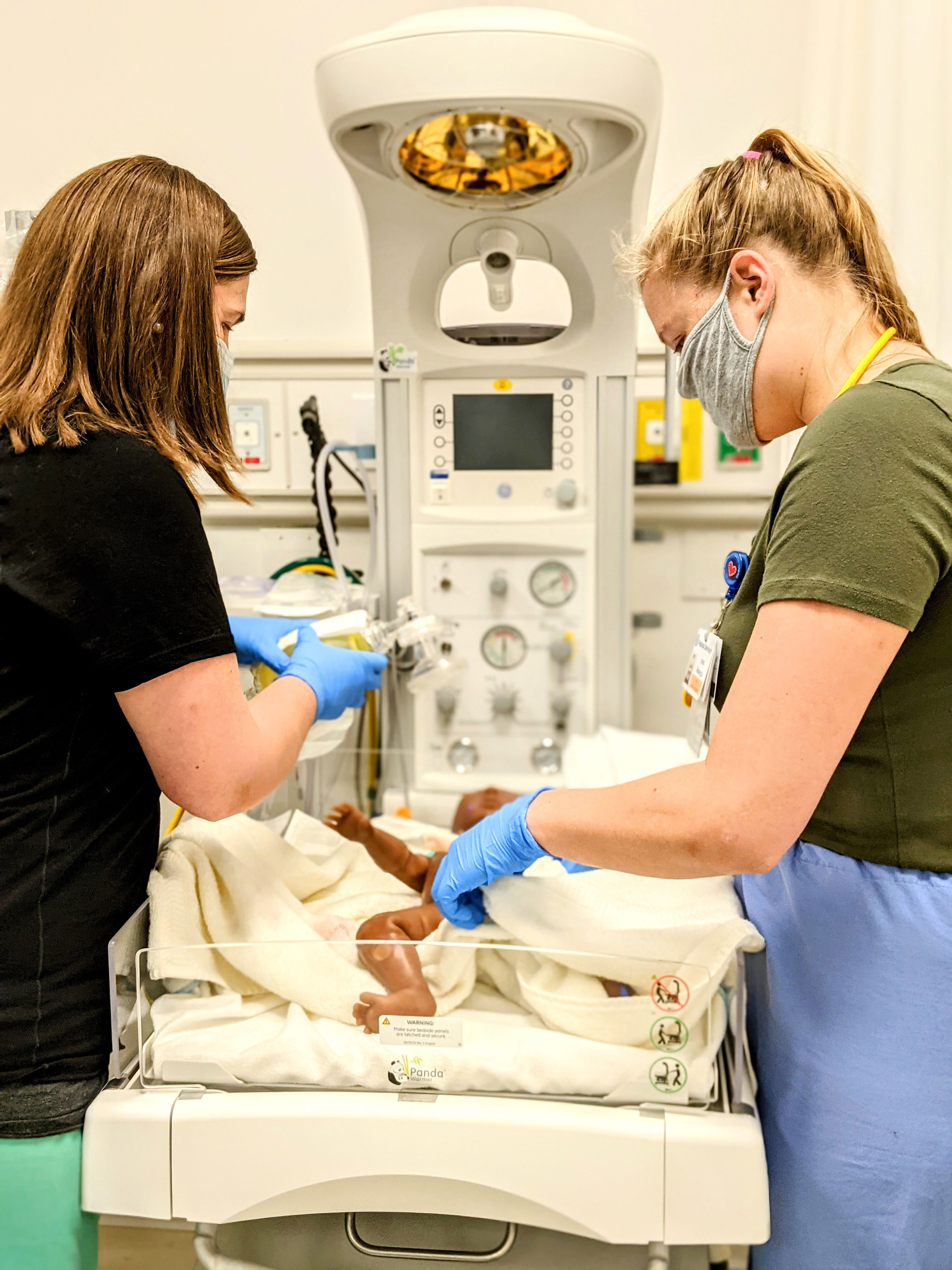Curriculum
The GRIT track is based on a two-year curriculum which explores numerous aspects of global health, social determinants of health, health systems, and cultivates local and global partnerships for hands-on experience.
Basic GRIT Educational Structure
We host monthly meetings alternating between clinical medicine teaching/simulations/cases in the CHIPS Center and global health training based in discussions and presentations on topics.

- Clinical medicine teaching
- SUGARPREP curriculum
- Common diseases and cases seen in LMIC
- Handling common situations without access to readily available tools
- Simulation teaching
- Simulations involve active participants and observers
- Cases are based on SUGARPREP cases
- Hands-on procedural teaching in the simulation center for commonly encountered procedures
- The global health teaching
- Discussions regarding the ethics and practicalities of short-term global health experiences
- Discussions of health systems across the globe
- Understanding the history and current state of global health
- Discussions about the effectiveness of international aid
GRIT Electives
The GRIT Electives include the opportunity for an elective abroad and a “local global health” elective. Each resident must complete one of the following electives:
-
Elective Abroad
-
This elective is currently being developed. With our MOU with Levy Mwanawasa Medical Center in Lusaka, Zambia, most abroad electives will likely occur at this site. This being said, we are happy to support any opportunity that a resident has available to them and count whatever elective they can set up, as long as it is supported by their respective program.
-
Local, Global Health Elective
-
The Local, Global Health Elective is designed to explore the local barriers to health care that underserved populations face, taking time to specifically focus on refugee populations and free clinics in the Memphis area. We will also discuss how to format grant applications and have a series of discussions regarding bioethics in the global sphere.
-
This elective is only feasible thanks to our wonderful local partners: Memphis African Community, World Relief Memphis, Refugee Empowerment Program, Multinational Memphis, and Asha’s Refuge.
Core Competencies
| Competency Addressed | Objective |
| Patient Care | Interact with patients in low-resource settings both locally and in low-middle-income countries. Become familiar with community resources available to refugees in Memphis and learn how to appropriately refer patients to these resources. |
| Medical Knowledge | Understand how social determinants of health play a role in the health care of patients and how addressing these issues improve health outcomes. |
| Understand the types of cases that you may face while practicing abroad. Interact with these cases through simulation, learn about the differences in resources available to physicians in LMIC. | |
| Practice-based Learning and Improvement | Simulation based learning with cases based in LMIC in terms of resources available and diagnoses. Using the CHIPS center we will practice procedures modeling limited resource settings. |
| Interpersonal and Communication Skills | Develop increased cultural competence to improve communication and interpersonal skills while working in LMIC. Gain exposure to different cultural norms and learn techniques to improve adaptability in new/low resource settings. |
| Professionalism | Develop competency in cultural differences affecting access to medical care and access to assistance programs in an underserved/LMIC population. |
| System-Based Practice | Understand different health systems and best practices for working in LMIC. |
|
Understand how physicians can improve the success of legal and social outcomes based off on appropriate medical documentation, physician referrals, and communication with community resources. |
Requirements for GRIT Certification
In order to successfully complete the GRIT curriculum and graduate with a Global Health Certificate, residents must satisfy the following:
- Attend 75% of teaching sessions

- attendance will be taken at each monthly meeting
- we will record each session, while they are virtual, and you can make up missed sessions by watching the zoom and sending in a word document with ten things you learned from the meeting
- Read 75% of books for Book Club
- we will be reading two books per year; you are expected to read at 75% of the books discussed while you are enrolled in the GRIT Track
- IM/Peds – must read 3 of the 4 books
- MedPeds – if you are in the GRIT program for 3 years, you must read 4 of the 6 books offered
- Complete ONE scholarly/educational activity
- examples:
- leading a simulation or book club discussion
- grant application or handbook for local/global health experiences
- research related to global health
- advocacy related to global health/underserved populations
- local outreach
- ONE GRIT elective
- Local, global health elective
- Abroad elective
